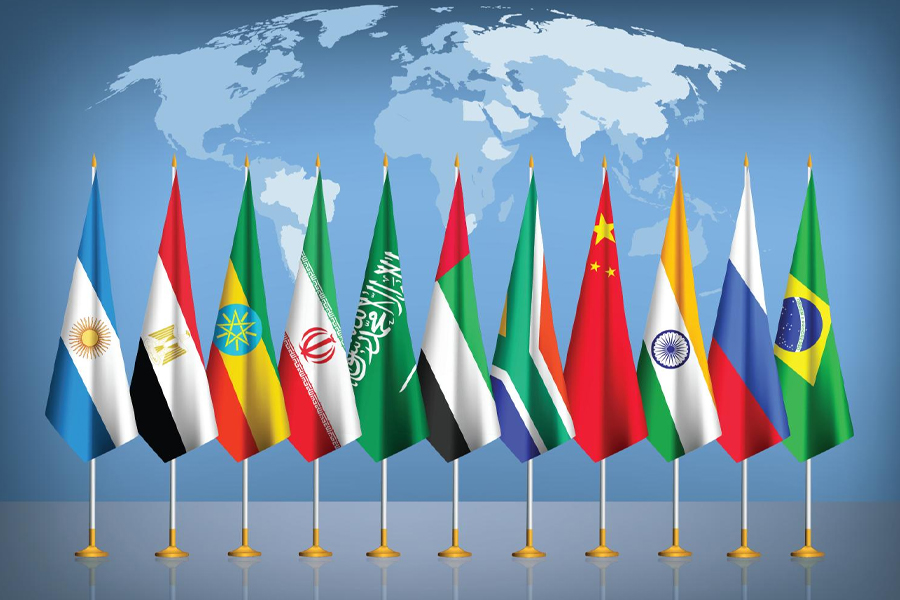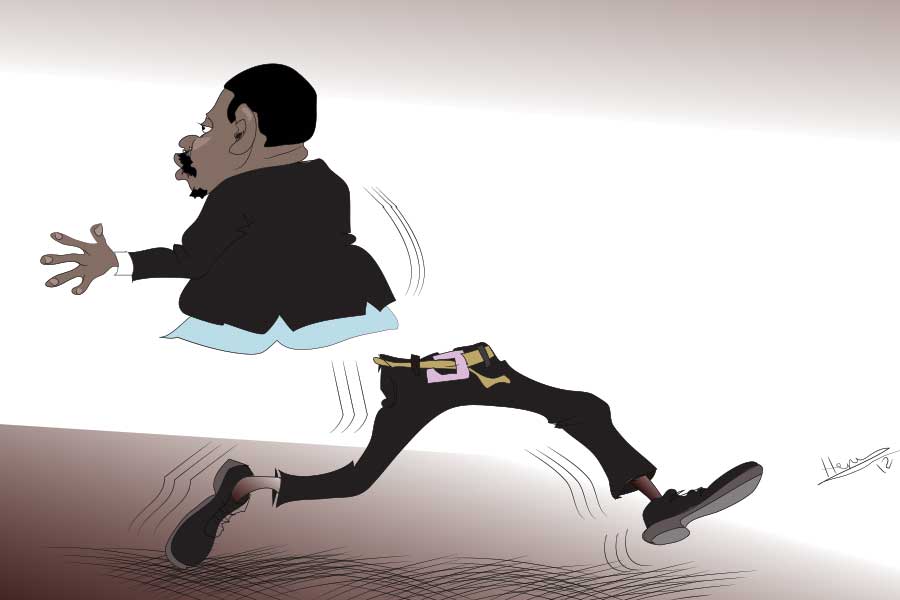
Commentaries | May 14,2022
Jun 8 , 2019
By Tsion Fisseha
In a show that talked about the different attires that attract both the female and male genders to one another, random people on the street gave various responses. Among the respondents, one caught my attention immediately. These responses would later be a point of discussion with my friends.
The first respondent said, “I like girls that wear short dresses. You know the types that are not afraid of showing off their assets.” The respondent continued, “I like girls that do not make a big deal out of a whole lot.”
The other one confidently said, “If I look at my wife, and I do not like what she is wearing, then there is no way I would let her leave the house like that. I would definitely make her change what she is wearing.”
This particular response, for me and for most of my friends who identify as feminists, did not just stop at clothing. It dragged us into the thought process of the power dynamics of that household.
Ethiopia is a land of a long cultural, political and economic history. It has dealt with famine, war (both internal and external) and many challenges, and it still is.
One of the battles that is being fought at this moment in time, with the help of the enlightened in society, is the narrative of gender equality.
This battle depicts the challenges that the female gender is currently facing in the country that we are living in.
The front runner among the challenges is sexual and gender-based violence that has killed and is killing so many innocent young girls and women.
In a recent statement released by the Addis Abeba Police Commission, in the past nine months, 13 women have been killed due to sexual and gender-based violence.
In addition to the killings and the physical abuse, these women are also vulnerable to psychological abuse that can last a lifetime.“An abuser doesn’t just beat and kick her but also makes her believe that there is no one else for her and that he is the only one she could count on,” says Zehra Legesse, psychologist and social worker, while talking about violence against women.
All of these, the statistics, the psychological impact and the misogyny flashed before me when the respondent said, “I would definitely make her change what she is wearing.”
There is always the possibility that the statement was spoken in the utterly positive sense. It is a possibility that the respondent did not mean it in a condescending manner. But negative light has been shed by both me and my friends that highlights the very fact that the comment set forth by the respondent could be an affirmation of patriarchy.
The respondents’ comment could easily be directed back to him to say “NO!”, not only about clothing but to any of the decisions made by the wife.
“Much work in feminist theory is devoted to the tasks of critiquing women’s subordination, analysing the intersections between sexism and other forms of subordination,” writes Amy Allen in her paper Feminist Perspectives on Power.
The institutional and legal structures of many countries were set up in such a way as to perpetuate patriarchy. Whether this is a cultural or evolutionary bias, the fact remains that those who want to stand for women’s rights find themselves at a crossroads.
However, laws are meant to change for the betterment of society, not just women. Things need to change from the grassroots level, allowing women and men to find a fine line around the power dynamics. This could be as big as enacting new legislation and reforming judicial systems to the smallest task of being able to wear what one wants without the intervention of others.
The Australian activist and writer G.D. Anderson once wrote, “Feminism isn’t about making women strong. Women are already strong. It’s about changing the way the world perceives that strength.”
PUBLISHED ON
Jun 08,2019 [ VOL
20 , NO
997]


Commentaries | May 14,2022

Viewpoints | Oct 20,2024

Life Matters | Nov 14,2020

Life Matters | Sep 18,2021

Viewpoints | Aug 05,2023

Viewpoints | Aug 29,2020

My Opinion | Feb 26,2022

Editorial | Oct 19,2019

My Opinion | Apr 04,2020

Fortune News | Oct 27,2024

Photo Gallery | 155299 Views | May 06,2019

Photo Gallery | 145574 Views | Apr 26,2019

My Opinion | 135172 Views | Aug 14,2021

Photo Gallery | 134062 Views | Oct 06,2021

Dec 22 , 2024 . By TIZITA SHEWAFERAW
Charged with transforming colossal state-owned enterprises into modern and competitiv...

Aug 18 , 2024 . By AKSAH ITALO
Although predictable Yonas Zerihun's job in the ride-hailing service is not immune to...

Jul 28 , 2024 . By TIZITA SHEWAFERAW
Unhabitual, perhaps too many, Samuel Gebreyohannes, 38, used to occasionally enjoy a couple of beers at breakfast. However, he recently swit...

Jul 13 , 2024 . By AKSAH ITALO
Investors who rely on tractors, trucks, and field vehicles for commuting, transporting commodities, and f...

Sep 13 , 2025
At its launch in Nairobi two years ago, the Africa Climate Summit was billed as the f...

Sep 6 , 2025
The dawn of a new year is more than a simple turning of the calendar. It is a moment...

Aug 30 , 2025
For Germans, Otto von Bismarck is first remembered as the architect of a unified nati...

Aug 23 , 2025
Banks have a new obsession. After decades chasing deposits and, more recently, digita...

Sep 15 , 2025 . By AMANUEL BEKELE
The Grand Ethiopian Renaissance Dam (GERD), Africa's largest hydroelectric power proj...

Sep 13 , 2025
The initial budget in 2011 was 80 billion Br, but this figure swelled to a revised cost of 240 billion Br by 2024, a challenge that was exac...

Sep 13 , 2025 . By BEZAWIT HULUAGER
Banks are facing growing pressure to make sustainability central to their operations as regulators and in...

Sep 15 , 2025 . By YITBAREK GETACHEW
The Addis Abeba City Cabinet has enacted a landmark reform to its long-contentious setback regulations, a...